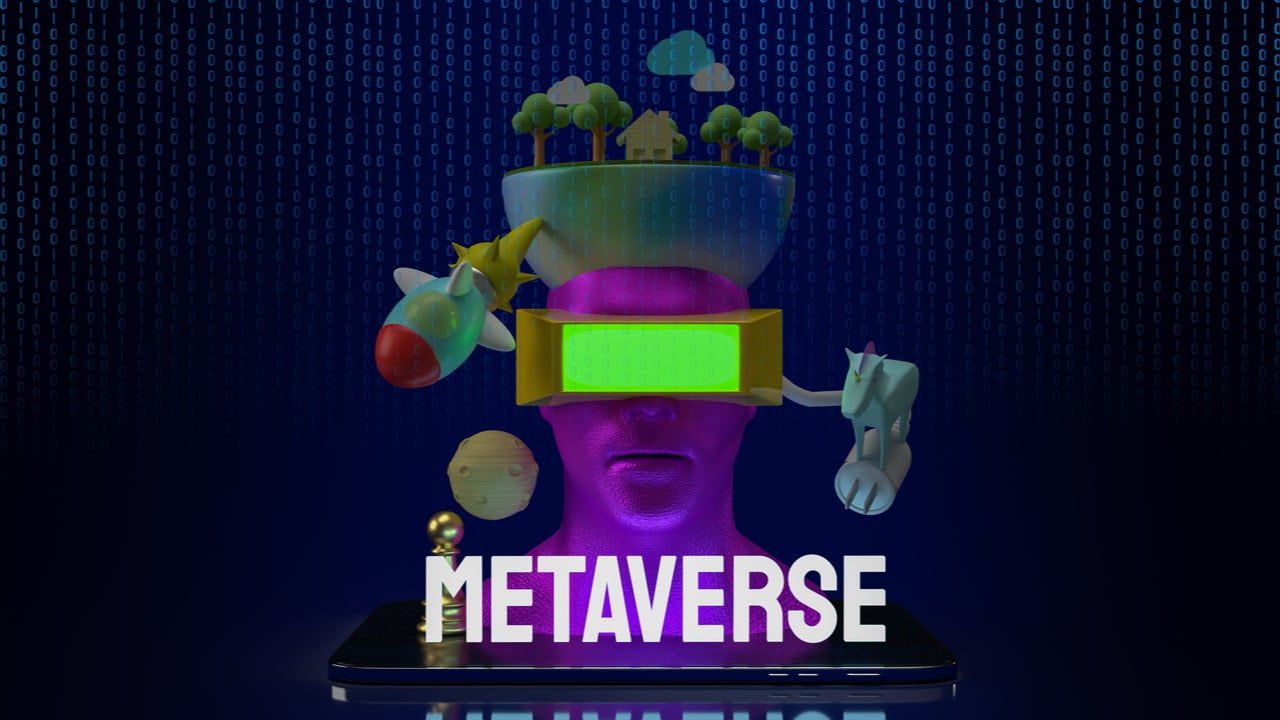The excessive hype around the metaverse was predominantly down to Mark Zuckerberg and his transformation of Facebook to Meta. Following on from Zuckerberg’s announcement, giants like Microsoft and NVIDIA began to formulate their own plans for the metaverse.
It is unlikely that these companies will form the basis of the first true metaverse, as companies that are among the first to begin developing anything rarely stay at the top and are soon superseded—as exemplified by Betamax and VHS, Lotus and Excel, and BlackBerry and Apple. However, Meta did spark the extensive hype around the metaverse as a concept. A Wall Street broker was quoted in the Economist, stating that the term, ‘metaverse’ had cropped up 449 times in Q3 2021 earnings calls, a huge increase from the 100 in Q2 2021.
All talk but no metaverse?
People have started to lose interest in the metaverse concept. This is because a true metaverse has not actually been released yet, and it is not looking likely any time soon. It is also suffering because of its association with the deeply unpopular and controversial Meta. The term ‘metaverse’ is now often met with a groan and frequently dismissed as unachievable and unappealing.
It is unlikely that the metaverse, in its true form, will be fully realized for many years. Therefore, its announcement was premature, as the metaverse was never going to happen overnight. Not only is the technology not close to being ready, but it is also likely that people will not accept it yet, as it is too much of a conceptual leap from the established digital media platforms that we use today. The metaverse will have to develop slowly and organically to successfully integrate into our everyday lives, just like smartphone technology.
Someone with a mobile phone 20 years ago would not believe the amount of time the average person spends on their smartphone today. In the same way, it is likely, if told, we would not be able to conceive of the ways in which we will consume digital media in 20 years’ time, without having lived through its slow evolution and integration. The adoption of the metaverse will not only have to happen slowly, but for its total acceptance, it will have to become a necessity for most people. The metaverse will have to become indispensable in everyday life, just as the smartphone has.
Why we should keep an eye on it
As the initial hype begins to plateau, it is important not to forget about the metaverse. Not least because of the ongoing and considerable investment going into its development at every stage of the value chain, including software and hardware. In April 2021, Epic Games announced a $1 billion funding round to develop a metaverse within Fortnite. More recently, in November 2021, SoftBank Group Corp. announced it was investing $150 million in a South Korean metaverse platform. Additionally, a headline in Forbes in December 2021 described the metaverse as a ‘$1 Trillion Revenue Opportunity’. These numbers are too big to ignore, and The Economist predicts that it is ‘shaping up to become a billionaire battle similar to the Bezos-Musk space race’.

US Tariffs are shifting - will you react or anticipate?
Don’t let policy changes catch you off guard. Stay proactive with real-time data and expert analysis.
By GlobalDataIt is also important not to forget about the reservations about data privacy and regulation in the metaverse. It is likely that the metaverse will have the same ad-funded business model as current social media platforms, so it is a valid fear that the same data privacy issues could then be extended or even exacerbated in the metaverse.
One possible way to counteract this is to continue to put pressure on companies to implement privacy in the design stage and draft pre-emptive regulations in conversation with developers. We must keep an eye on which companies are building the metaverse as its potential to change our everyday lives is very real.









